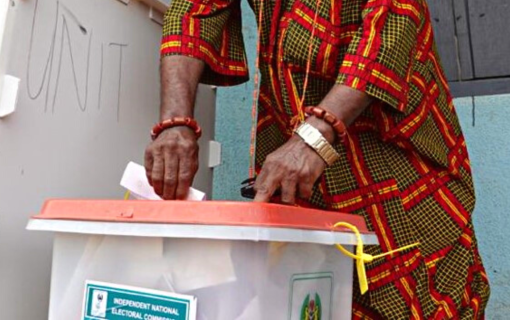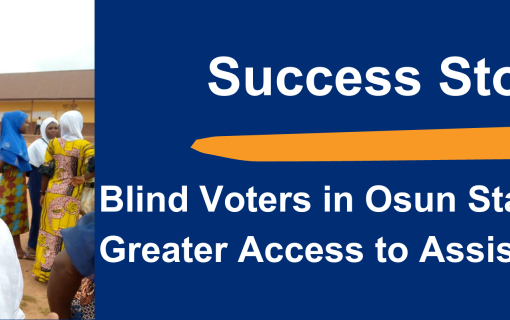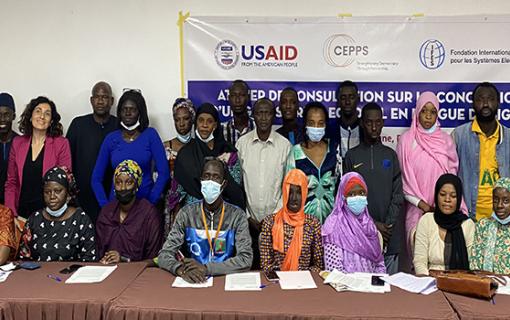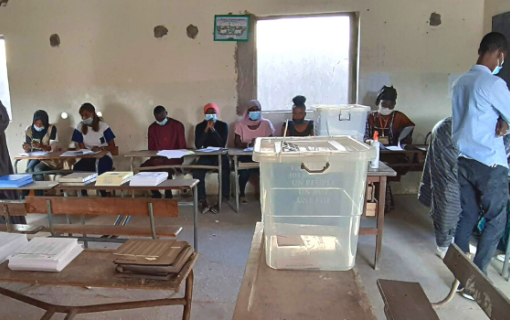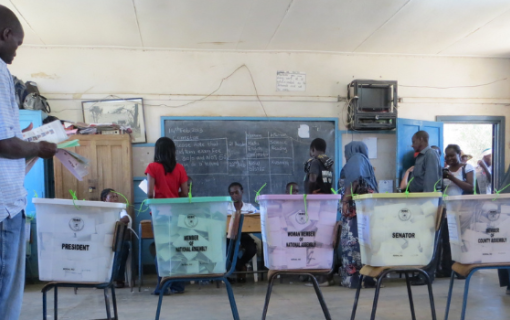IFES President Sweeney Testifies on Capitol Hill on Election Support in Africa
On March 18, 2015, International Foundation for Electoral Systems (IFES) President and CEO Bill Sweeney provided testimony to the House Foreign Affairs Subcommittee on Africa, Global Health, Global Human Rights, and International Organizations on “U.S. Election Support in Africa.” IFES was invited to discuss the implementation of effective electoral assistance in Africa, and to provide recommendations for improving future aid.
After thanking Chairman Mark Emmer (R-Minn.), Ranking Member Karen Bass (D-Calif.), and the Subcommittee for convening the hearing, Sweeney introduced IFES’ missions in Burkina Faso, Burundi, the Central African Republic, Côte d’Ivoire, Guinea, Kenya, Liberia, Mali, Nigeria, Uganda, and Zimbabwe to empower the individuals and institutions that make democracy work at every turn of the electoral cycle. Sweeney was joined on the day’s second panel by Gretchen Birkle, Regional Director for Africa at the International Republican Institute; Eric Robinson, Senior Program Officer for East and Horn of Africa at the National Endowment for Democracy; and Pat Merloe, Director of Electoral Programs and Senior Associate at the National Democratic Institute.
In light of Nigeria’s March 28 general elections, Sweeney first took the opportunity to recognize the remarkable democratic progress the country has made, and express support for the challenges they will face in the upcoming electoral cycle. “Every Nigerian who votes is choosing the ballot over the bullet,” Sweeney declared. Furthermore, Sweeney noted, “Nigerians’ vote this time is a rejection of Boko Haram, their public threats to the election, and the terrorist legacy since 2009 of 13,000 dead; 1.5 million forced to flee their homes; and kidnappings, including the 219 schoolgirls.” Sweeney also commended Professor Attahiru Muhammadu Jega, Chairman of Nigeria’s Independent National Electoral Commission, for bringing a new level of professionalism and integrity to the institution.
Sweeney then summarized IFES’ written statement (which was submitted prior to the hearing), highlighting how elections represent the most viable path for peaceful political change, and provide a nonviolent alternative to armed intervention and authoritarian rule. He stressed the importance of technical assistance to electoral management bodies, which introduces global standards, best practices, strategic planning, and specialized programs for outreach to youth, women, persons with disabilities, and ethnic and religious minorities. Sweeney concluded his remarks by thanking the Subcommittee, and recognizing the U.S. Agency for International Development (USAID), the U.S. Department of State, and IFES’ international partners for their continued support.
Along with Chairman Emmer and Ranking Member Bass, the hearing was attended by Congressman Mark Meadows (R-N.C.), Congressman Ami Bera (D-Calif.) and Congressman Curt Clawson (R-Fla.). The hearing’s first panel featured the Hon. Eric G. Postel, Assistant to the Administrator in the Bureau for Africa at USAID.
During the question and answer session, Sweeney fielded several questions on the high expectations of African youth for responsive political processes, the security outlook of the upcoming Nigerian elections, and how democratic progress can be made in economically restrictive societies.




